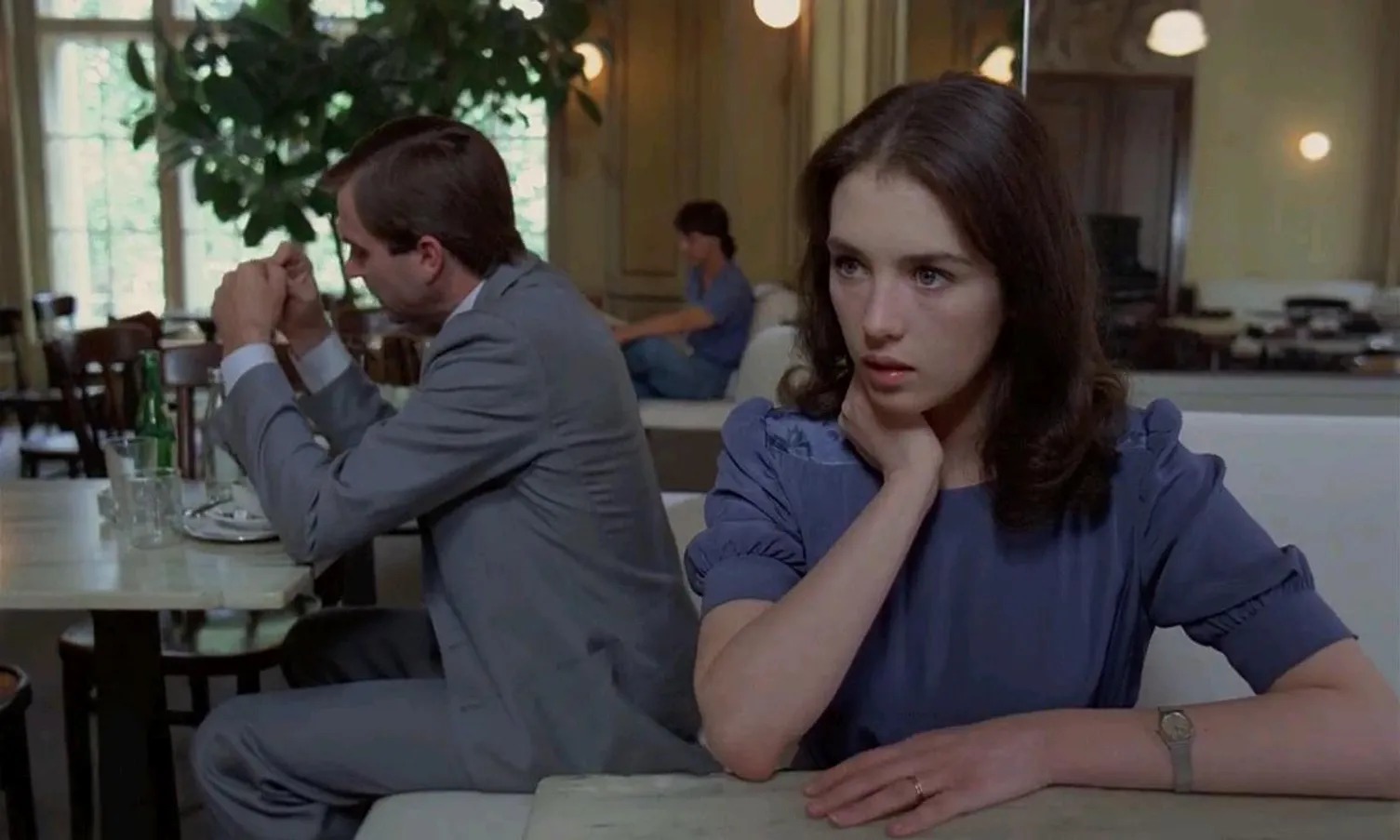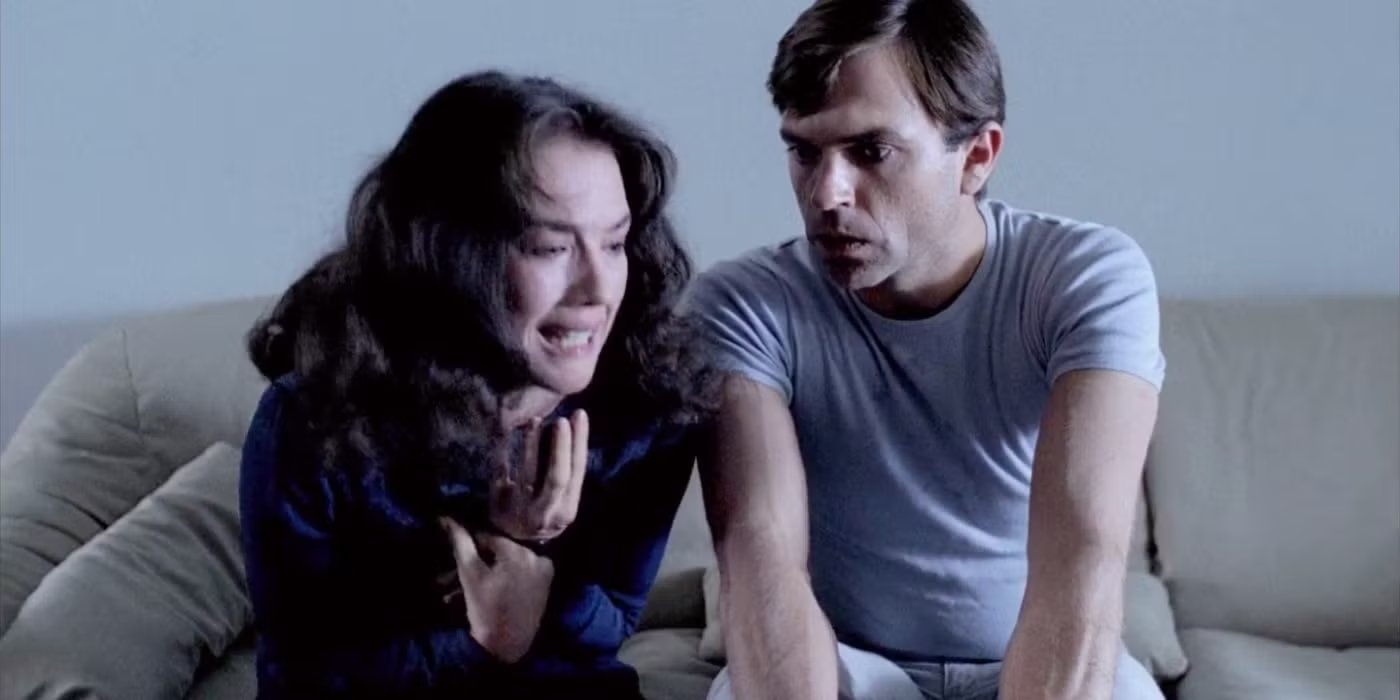Possession (1981)

Possession (1981) is a psychological horror film directed by Andrzej Żuławski, who co-wrote the screenplay with Frederic Tuten. Set in Berlin during the Cold War, the film tells the story of Mark (played by Sam Neill), an international spy who returns home to find that his wife, Anna (played by Isabelle Adjani), has begun acting in increasingly disturbing ways. As Mark attempts to understand what has happened to his wife, their deteriorating marriage becomes the center of a terrifying and surreal narrative about obsession, betrayal, and the darkness that lies beneath the surface of relationships.
The film’s plot centers on Mark’s return from a mission abroad, only to discover that Anna has asked for a divorce. What follows is a descent into madness as Anna’s behavior becomes more erratic and violent. She starts exhibiting strange and unsettling actions, which lead Mark to believe that she may be hiding something from him. His obsession with uncovering the truth about his wife’s transformation becomes a key element of the film, as he spirals further into a dark and disorienting world of emotional and psychological horror.
At the heart of Possession is the intense and volatile relationship between Mark and Anna. Their marriage, which appears normal at first, quickly unravels as Anna’s behavior grows increasingly bizarre. Her erratic actions—ranging from violent outbursts to strange sexual behaviors—leave Mark confused and desperate. As the film progresses, it becomes clear that Anna’s behavior is connected to something far darker, leading to one of the most shocking and surreal revelations in cinema. The emotional intensity of the film is heightened by the performances of the lead actors, with Isabelle Adjani delivering a powerful and haunting portrayal of a woman on the brink of madness.

The film’s exploration of psychological horror is deeply intertwined with its surreal elements. Possession is not just a traditional horror film; it’s a complex psychological thriller that blurs the lines between reality and illusion. The unsettling imagery, along with the distorted and fragmented narrative, creates a sense of unease and confusion, leaving the audience questioning what is real and what is not. Żuławski’s direction is purposefully disorienting, creating a sense of dread that builds throughout the film. This surrealism is further emphasized by the film’s unsettling visuals and an intense, almost nightmarish atmosphere.

The performances in Possession are extraordinary, particularly Isabelle Adjani’s portrayal of Anna. Her performance is raw, emotional, and disturbing, capturing the character’s internal struggle and psychological unraveling. Adjani’s work earned her widespread acclaim, and her portrayal is one of the film’s most memorable aspects. Sam Neill, as Mark, complements Adjani’s performance with his portrayal of a man driven to madness by the collapse of his marriage and his growing fear of losing his wife to an unknown force. Together, they create a powerful emotional dynamic that drives the film’s dark narrative.

In conclusion, Possession is a haunting and disturbing film that transcends the traditional boundaries of the psychological horror genre. Through its intense performances, surreal visuals, and exploration of the depths of human obsession, the film delivers a unique and unsettling cinematic experience. Andrzej Żuławski’s direction and storytelling provide a glimpse into the darkness of the human psyche, and the unraveling of a marriage serves as a powerful metaphor for personal and emotional destruction. Possession remains a cult classic, celebrated for its bold, unconventional approach to horror and its portrayal of the terrifying and irrational aspects of the human condition.











